Published 10:36 IST, October 17th 2024
US economy is partying, but voters are hungover
Gasoline prices aren’t as high as it may seem. Even inflation looks better.
- Economy
- 4 min read

Just right?. With less than a month to go before the U.S. elections, the American economy is in arguably in the best shape it has been prior to any presidential contest in recent history. Unemployment is at a more than two decade low. Gasoline prices aren’t as high as it may seem. Even inflation looks better. While Vice President Kamala Harris will likely not claim the full benefit of incumbency following President Joe Biden’s decision not to seek a second term, the economy’s recent performance should put the wind in her sails and blunt one of Republican nominee Donald Trump’s main arguments against her.
Yet a recovery may have come too late for Harris. Feelings of economic euphoria take time to sink in. It takes time for people to recognize the improvement in their situation after a period of economic volatility. That may explain why Harris still trails Trump in most polls on economic issues, as consumer confidence remains low. And she can’t change the fact that people feel less rich.
Unemployment
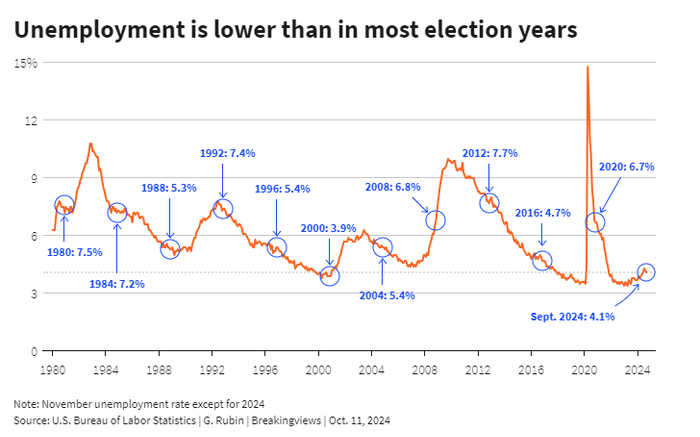
The labor market continues to be the economy’s engine, with little overall slippage from recent half-century lows in the unemployment rate. Layoffs remain in check even as the pace of hiring has slowed, with employers reluctant to part with workers. With wage growth continuing to ramp up faster than inflation, employed consumers are creating a virtuous circle with their spending, keeping others employed.
Unemployment is at its lowest level of any recent election other than in 2000. Surprisingly, that doesn’t necessarily bode well for Harris: in that election, the vice president (Al Gore) of a departing Democratic president (Bill Clinton) lost one of the closest elections in history to George W. Bush.
Inflation
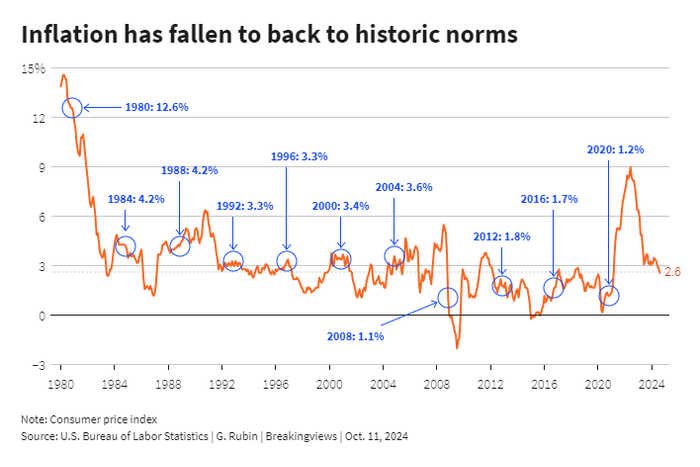
The consumer-price index has returned to acceptable levels after reaching a four-decade high earlier in Biden’s term. Despite the rapid price rises of 2021-2022, the current inflation rate is cooler than it was in the 1980s and 1990s, even if that might surprise many voters.
The recent subdued growth in prices is welcome, though the cumulative growth of prices over the past four years still leaves a mark on bank accounts. Adjusting requires time: it can take five years for people to psychologically get accustomed to higher prices, according to research by economists at Stanford University.
Gasoline prices
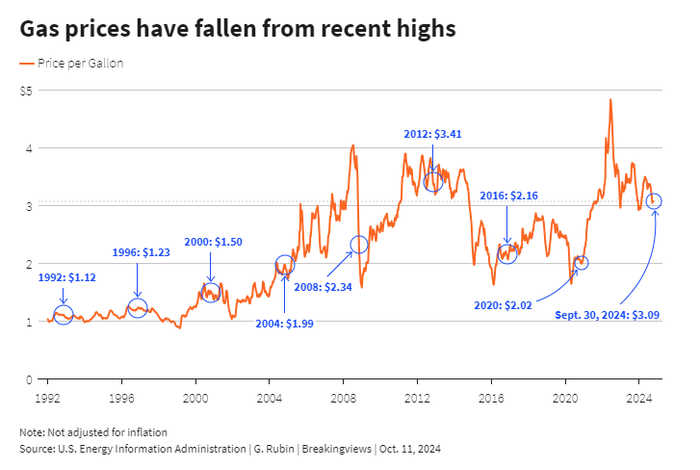
Gas prices are one of the most prominent tags voters see on a daily basis, and consumer sentiment is often closely related to their fluctuations. Political science research has consistently found that voters attribute outsize weight to them: A landmark 2016 paper that controlled for other economic factors and significant news found that a 10-cent increase in gasoline prices correlated with a 0.60% decrease in presidential approval. That makes any flare-up in oil markets particularly perilous to an incumbent party in an election year.
Part of the reason for lower inflation is the price of oil, in part due to a surge of U.S. exports. Geopolitical risks —especially a possible widened war in the Middle East — threaten to crimp supply and push Brent crude higher. But as it stands, prices at the pump are, even unadjusted for inflation, lower than they were during the runup to the 2012 election.
Consumer confidence
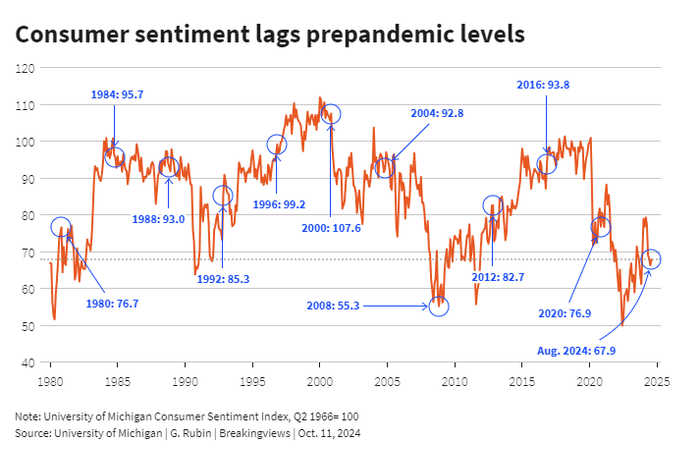
For all the positive indicators, why does Harris trail Trump in most polls about who would handle economic issues better? Consumers remain battered from post-pandemic inflation. Consumer sentiment scars can take time to heal, as the period following the 2008 financial crisis illustrates. The twin hits of the pandemic shock and the subsequent inflation and Federal Reserve rate hike campaigns have taken their toll on consumers’ feelings about the economy, and the rebound is not yet complete.
Household wealth
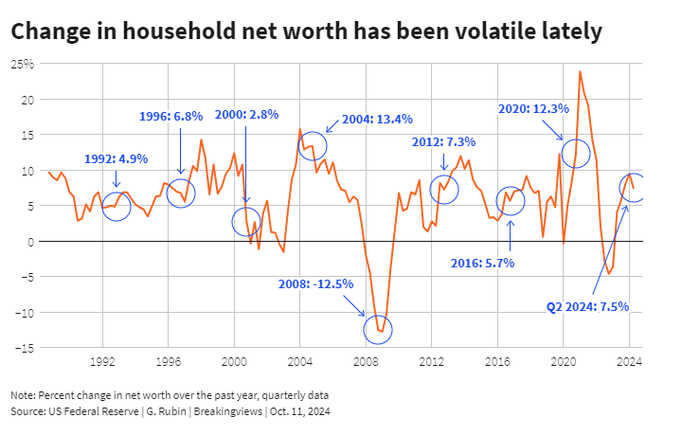
Household wealth in the United States is based on two main factors: real estate and the stock market. Major market swings in recent years have largely given way to growth in household wealth, but memories of the 2022-2023 market swoon may have left scars.
Still average household wealth can be deceiving in other ways: although around 65% of Americans own their homes, overall wealth is highly concentrated among the top 1% - in 2022, around 10% of U.S. households held about 75% of the wealth. So fluctuations in wealth, while they affect the broader population, are felt most by those at the very top, and may have little impact on overall voter sentiment.
Nevertheless, those voters felt a lot richer when Trump left office, partly because government spending to bolster the economy had irrationally inflated stock prices. Biden dealt with the hangover of that spending. Harris, though, is left with the election headache.
Context News
A Reuters/Ipsos poll released Oct. 8 found that respondents rated the economy as the top issue facing the country, with some 44% saying former President Donald Trump had the better approach on addressing the "cost of living," compared to 38% who picked Vice President Kamala Harris.
Updated 10:36 IST, October 17th 2024